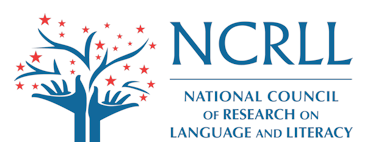Generative AI and Composing: An Intergenerational Conversation among Literacy Scholars
In the spring of 2023, a lively conversation emerged on the National Council of Research on Language and Literacy (NCRLL)’s listserv. Stephanie initiated the conversation by sharing an op-ed she wrote for the Atlanta Journal-Constitution about the rise of ChatGPT and similar generative artificial intelligence (AI) platforms, moving beyond the general public’s concerns about student cheating and robot takeovers. Inspired by that listerv conversation and an organizational interest in promoting intergenerational collaboration among literacy scholars, NCRLL then convened a webinar of eight leading scholars in writing development, digital literacies, and critical literacies.
Read the full conversation in the English Teaching: Practice & Critique special issue “Artificial Intelligence and Composing Just Education Futures.”
NCRLL Panelists:
Grace Enriquez and Victoria Gill, Lesley University
Gerald Campano, University of Pennsylvania
Tracey T. Flores, The University of Texas at Austin
Stephanie Jones, University of Georgia, Athens
Kevin M. Leander, Vanderbilt University
Lucinda McKnight, Deakin University
Detra Price-Dennis, The Ohio State University
Special thanks for video editing and hosting:
Education Now Lab and Anna Smith, Illinois State University
Fikayo Olutomiwa, Illinois State University
Kyley Pulphus, Louisiana State University
The webinar conversation was recorded on two different days due to scheduling conflicts. It has been merged and edited into one dialogue for clarity, coherence and convergence. Throughout the webinar, these scholars moved through, among and between several different levels of analysis or critique of generative AI and composition. While the discussion addressed matters of pedagogy, definitions of literacy and the purpose of (literacy) education, other themes included a critique of capitalism, an interrogation of the systems of power and oppression involved in using generative AI, and the philosophical, ontological, ethical and practical life questions about being human.
Interestingly, in the process of transcribing and translating two hour-long conversations into one transcript, the authors found themselves engaged in a kind of critical, collaborative, contextually and historically informed coauthor debate around the nuances of language – the kind Lucinda noted “is less likely to take place when a user gets ChatGPT to generate an article.” Altogether, the conversation offers important and critical discussion and different perspectives on using generative AI in the classroom, asking ourselves what it means to be a writer and to write, what it means to teach and be in connection with our students and their lives, what drives the discourses regarding technology in education, what drives the accelerated speed advancing AI and Large Language Models for public use and consumption and what we can imagine education can and will be in the context of this qualitative and monumental leap in technological advancement.
Designed by Elegant Themes | Powered by WordPress


